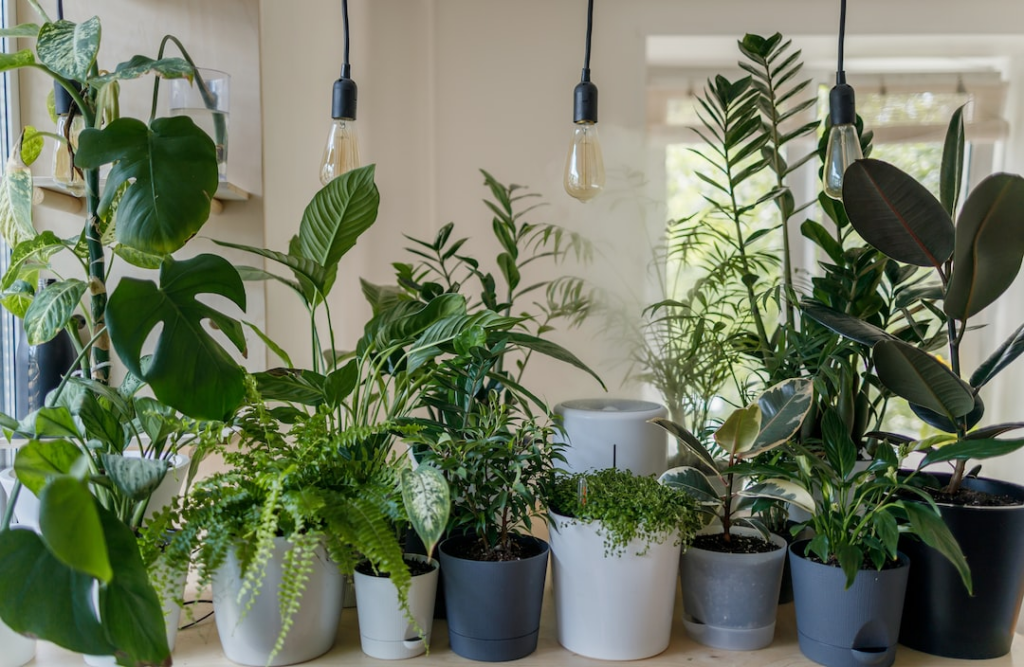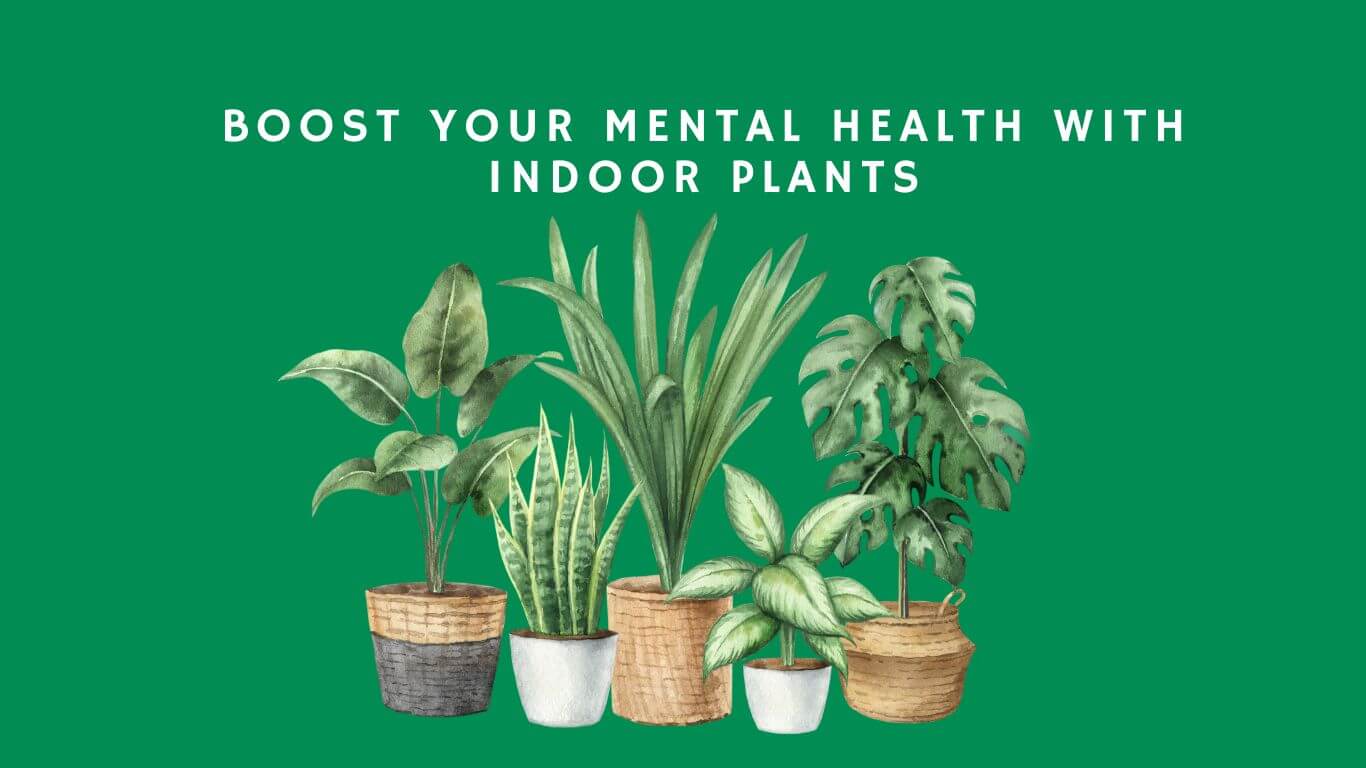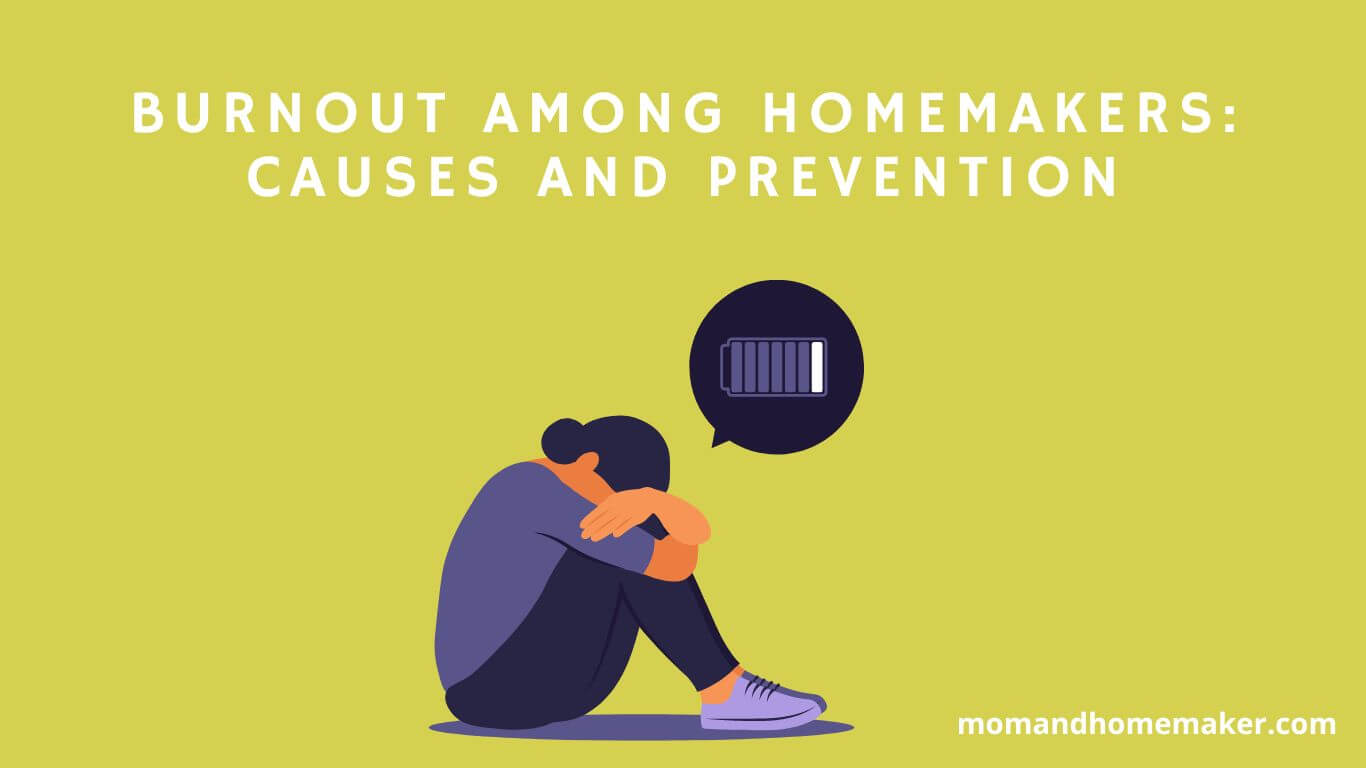Taking care of our mental health has become more important than ever in today’s fast-paced and often stressful world. Many people are seeking natural and holistic ways to alleviate stress, and anxiety, and improve overall well-being.
One such solution that is gaining popularity is incorporating indoor plants into our living spaces. These green companions not only add beauty and freshness to our homes but also offer a range of mental health benefits.
With natural stress relief, enhanced mood and well-being, increased concentration and productivity, and even purified air quality, indoor plants offer a multitude of benefits. Join the growing community of plant lovers and experience the beauty, inspiration, and sense of belonging that comes with nurturing these living companions.
If you’re looking for a simple yet effective way to enhance your well-being, keep reading to discover the incredible power of indoor plants.

The Benefits of Indoor Plants
Indoor plants have numerous benefits that can greatly improve your mental health. Not only do they add beauty and life to your living spaces, but they also have a positive impact on your overall well-being.
One of the key advantages of having indoor plants is that they help to improve the quality of the air you breathe. Plants act as natural air purifiers, filtering out harmful toxins and releasing fresh oxygen into the environment. This not only creates a healthier living space but also has a direct impact on your mental health. Breathing in clean air can boost your mood, reduce stress, and increase your overall sense of well-being.
In addition to improving indoor air quality, indoor plants have a calming effect on the mind. The presence of plants has been shown to reduce anxiety and promote relaxation, creating a soothing and peaceful atmosphere in your home. Being surrounded by nature indoors can also help you feel more connected to the natural world, even if you live in a busy urban environment. This sense of connection can provide a sense of belonging and fulfillment, enhancing your overall mental health.
Incorporating indoor plants into your living spaces is a practical and effective way to boost your mental health and enhance your overall well-being.
Natural Stress Relief
To naturally relieve stress, incorporate indoor plants into your living spaces and experience the calming effects they’ve on your mind and body. Indoor plants aren’t just beautiful decorations; they can significantly improve your mental well-being and promote emotional balance. Here are a few ways in which indoor plants can provide natural stress relief:
- Creating a peaceful environment: Surrounding yourself with lush greenery can create a serene atmosphere that promotes relaxation and reduces anxiety.
- Promoting mindfulness: Caring for indoor plants requires attentiveness and focus. By engaging in mindful practices such as watering, pruning, and observing their growth, you can cultivate a sense of presence and calmness.
- Improving air quality: Indoor plants act as natural air purifiers, filtering out toxins and releasing oxygen. Breathing in cleaner air can help you feel more refreshed and energized, reducing stress levels.
Incorporating indoor plants into your living spaces is a simple yet effective way to incorporate relaxation techniques and mindfulness practices into your daily routine.
Enhancing Mood and Well-being
Enhancing your mood and well-being can be achieved by incorporating indoor plants into your living spaces. Indoor plants not only add beauty and freshness to your home but also offer numerous mental health benefits.
The presence of greenery has been shown to enhance focus and boost energy levels, allowing you to be more productive and efficient in your daily activities.
Having indoor plants promotes positivity by creating a calming and peaceful environment. The vibrant colors and natural elements of plants can uplift your spirits and improve your overall well-being. The act of caring for plants also provides a sense of responsibility and fulfillment, giving you a sense of purpose and satisfaction.
In addition to promoting positivity, indoor plants have a remarkable ability to reduce stress. Studies have shown that being around plants can lower blood pressure, reduce anxiety, and promote relaxation. The soothing presence of plants can create a tranquil atmosphere, allowing you to unwind and de-stress after a long day.
Boosting Concentration and Productivity
Improve your focus and efficiency by incorporating indoor plants into your living spaces. Indoor plants have the power to transform your work environment and enhance your concentration and productivity. Here’s how:
- Boosting Focus: Indoor plants provide a calming and soothing atmosphere, reducing distractions and allowing you to stay focused on the task at hand. The presence of greenery can help to create a sense of tranquility and promote a clear mind.
- Enhancing Alertness: Certain indoor plants, such as rosemary and peppermint, release natural scents that can stimulate the brain and increase alertness. These refreshing fragrances can help you feel more awake and attentive, making it easier to stay on top of your work.
- Improving Memory: Studies have shown that being surrounded by plants can improve memory retention and cognitive performance. The sight of greenery can help to boost memory recall and information processing, allowing you to retain and retrieve information more effectively.
Incorporating indoor plants into your workspace not only adds a touch of nature but can also increase efficiency and maximize productivity.
Purifying Indoor Air Quality
Indoor plants can significantly improve the quality of the air in your living spaces, benefiting your mental health. Not only do they add a touch of greenery and natural beauty to your home, but they also act as natural air purifiers. Plants have the amazing ability to absorb harmful pollutants and release oxygen, creating a healthier environment for you to thrive in.
Air-purifying plants have been shown to reduce the levels of toxins and pollutants such as formaldehyde, benzene, and trichloroethylene in the air. These substances are commonly found in household items like cleaning products, furniture, and carpets. When you introduce air-purifying plants into your indoor spaces, you can naturally remove these toxins and breathe cleaner, fresher air.
The health benefits of indoor plants extend beyond just their air-purifying properties. Studies have shown that being surrounded by plants can reduce stress, improve mood, and increase productivity. Indoor gardening, also known as plant therapy, provides a sense of connection with nature and a calming effect on the mind.
Increasing Oxygen Levels
To maximize the benefits of indoor plants, ensure that you have a sufficient number of oxygen-producing plants in your living spaces. Increasing oxygen levels in your home can have a profound impact on your overall well-being. Here are three ways in which having more oxygen in your environment can enhance your daily life:
- Increasing productivity: Oxygen is vital for your brain to function at its best. By having more oxygen in your living spaces, you can improve your cognitive abilities, enhance concentration, and boost productivity. Say goodbye to those mid-afternoon slumps!
- Improving focus: When your brain receives an ample supply of oxygen, it becomes easier to maintain focus and stay on task. You’ll find yourself better able to concentrate on your work, studies, or any activity that requires mental clarity.
- Boosting energy levels and promoting better sleep: Oxygen-rich environments can give you a natural energy boost, reducing fatigue and helping you feel more alert throughout the day. Additionally, better oxygen levels can contribute to more restful and rejuvenating sleep, leaving you feeling refreshed and ready to take on the day.
Creating a Calming Environment
Enhance your indoor space by cultivating a serene atmosphere with the help of calming plants. Creating a peaceful atmosphere in your home can greatly contribute to reducing stress levels and promoting tranquility. By incorporating plants known for their calming properties, you can foster a sense of calm and cultivate a soothing ambiance that will bring you a sense of peace and belonging.
To help you visualize the impact of calming plants, here is a table showcasing some popular options:
| Plant Name | Benefits | Care Level |
|---|---|---|
| Lavender | Reduces anxiety and promotes relaxation | Easy to moderate |
| Snake Plant | Purifies air and improves sleep | Easy |
| Aloe Vera | Absorbs toxins and enhances air quality | Easy |
| Peace Lily | Increases humidity and reduces stress | Moderate |
These plants not only add beauty to your space but also have the ability to positively affect your mental well-being. They can help you unwind after a long day, create a sense of tranquility, and promote a more peaceful and calming environment.
Connecting With Nature Indoors
Create a deeper connection with nature by bringing the outdoors inside with the help of indoor plants. Indoor gardening isn’t only a trendy hobby but also a form of plant therapy that can greatly benefit your mental health. By greening indoors, you can create nature-inspired decor that promotes a sense of calm and tranquility in your living space. Incorporating biophilic design principles can enhance your connection with nature and create a more harmonious environment.
Here are three ways to connect with nature indoors:
- Create a green oasis: Fill your home with a variety of indoor plants, such as ferns, succulents, and peace lilies. These plants not only add beauty to your space but also purify the air and improve humidity levels. Surrounding yourself with greenery can help reduce stress, increase productivity, and promote overall well-being.
- Bring in natural elements: Incorporate natural materials, such as wood and stone, into your home decor. Use furniture made from sustainable materials and opt for earthy tones to create a soothing and grounding atmosphere.
- Embrace natural light: Open up your curtains and let natural light flood into your space. Natural light has a positive impact on mood and energy levels. If natural light is limited, consider using full-spectrum light bulbs to mimic the benefits of sunlight.
Improving Sleep Quality
Improve your sleep quality by incorporating indoor plants into your bedroom decor. Not only do plants add a touch of nature to your space, but they can also have a positive impact on your sleep. Certain plants, known as sleep-inducing plants, release oxygen at night and purify the air, creating a more peaceful and relaxing environment for sleep. Some examples of these plants include lavender, jasmine, and aloe vera.
In addition to incorporating sleep-inducing plants, establishing bedtime rituals and practicing good sleep hygiene can further improve your sleep quality. Establishing a consistent sleep schedule, avoiding caffeine and electronics before bed, and creating a calm and comfortable bedroom environment are all important factors to consider.
Relaxation techniques, such as deep breathing exercises or gentle stretching before bed, can also help prepare your mind and body for sleep. Creating a soothing ambiance with soft lighting, calming scents, and comfortable bedding can further enhance your sleep experience.
By paying attention to your bedroom environment and incorporating sleep-inducing plants, bedtime rituals, sleep hygiene, and relaxation techniques, you can create a sleep-friendly atmosphere that promotes better sleep quality. Prioritizing your sleep can lead to improved overall well-being and a greater sense of belonging in your own space.
Reducing Symptoms of Depression and Anxiety
Incorporating indoor plants into your living space can have a positive impact on reducing symptoms of depression and anxiety, providing a natural and soothing environment to support your mental well-being. Here’s how indoor plants can help alleviate your symptoms and enhance your emotional health:
- Reducing stress: Indoor plants have been shown to lower stress levels by creating a calming atmosphere. The presence of greenery can help you feel more relaxed and at ease, reducing the cortisol levels in your body and promoting a sense of tranquility.
- Boosting mood: Indoor plants can lift your spirits and improve your mood. The vibrant colors and textures of plants can bring joy and happiness to your space, creating a more positive and uplifting environment. Additionally, taking care of plants can give you a sense of purpose and fulfillment, further enhancing your emotional well-being.
- Improving mental well-being: Research suggests that being around plants can improve cognitive function and increase focus. Indoor plants can also provide a sense of connection to nature, which is known to have a positive impact on mental health. By bringing nature indoors, you can create a nurturing and peaceful atmosphere that supports your overall well-being.
Incorporating indoor plants into your living space is a practical and effective way to reduce symptoms of depression and anxiety while enhancing your mental well-being.
Promoting Relaxation and Serenity
To achieve a state of relaxation and serenity, surround yourself with indoor plants. These natural wonders not only add a touch of beauty to your space, but they also have the power to promote calmness and tranquility.
Including indoor plants in your environment can be a practical and effective way to enhance your mental well-being. Let’s explore how these green companions can help you in your quest for relaxation and serenity.
One of the ways indoor plants can promote relaxation is by providing a soothing environment for mindfulness exercises and meditation techniques. By creating a peaceful and serene atmosphere, plants can help you focus and center your mind.
The act of caring for indoor plants can be a form of self-care, allowing you to engage in stress management strategies and relaxation techniques. Taking a few moments each day to tend to your plants can provide a sense of purpose and connection to nature, which can be incredibly grounding.
To further illustrate the benefits of indoor plants for relaxation and serenity, let’s take a look at the table below:
| Plant Name | Relaxation Benefits |
|---|---|
| Lavender | Promotes calmness and relaxation |
| Aloe Vera | Purifies the air and reduces stress |
| Peace Lily | Enhances tranquility and peace |
As you can see, these plants have specific qualities that can aid in creating a serene atmosphere. You can create a haven of relaxation and serenity in your space when you include them.
Enhancing Cognitive Function
By incorporating indoor plants into your space, you can enhance your cognitive function and improve mental clarity. Indoor plants have a positive impact on your brain health and can help in improving memory, enhancing focus, boosting learning, increasing mental clarity, and improving problem-solving skills.
Here are three ways in which indoor plants can enhance your cognitive function:
- Improving memory: Studies have shown that being around plants can improve memory retention and recall. The presence of indoor plants in your surroundings can stimulate your brain and help you remember things more effectively.
- Enhancing focus: Indoor plants can create a calming and peaceful environment, which can help you stay focused on your tasks. The presence of greenery can reduce distractions and improve your ability to concentrate on the task at hand.
- Boosting learning: Research suggests that having indoor plants in educational settings can improve learning outcomes. The presence of plants can create a more engaging and stimulating environment, leading to better retention and absorption of information.
Managing Seasonal Affective Disorder (SAD)
Indoor plants can also help you manage Seasonal Affective Disorder (SAD) by improving your mood and reducing the symptoms associated with this condition. SAD is a type of depression that occurs during the winter months when there is less natural sunlight. It can leave you feeling low, lethargic, and irritable. But don’t worry, there are ways to alleviate these symptoms and boost your overall well-being.
One effective coping mechanism for managing SAD is light therapy. This involves sitting near a special light box that emits bright light, similar to natural sunlight.
Light therapy has been shown to improve mood and reduce the symptoms of SAD. You can incorporate this self-care practice into your daily routine by spending 30 minutes to an hour near the light box each day.
In addition to light therapy, there are other holistic well-being practices you can try to manage SAD. Engaging in regular exercise, practicing mindfulness and relaxation techniques, and maintaining a healthy diet can all play a role in reducing stress and boosting your mood.
Here is a table that summarizes these coping mechanisms for managing SAD:
| Coping Mechanism | Description |
|---|---|
| Light Therapy | Sitting near a special light box that emits bright light to mimic natural sunlight |
| Exercise | Engaging in regular physical activity to reduce stress and improve mood |
| Mindfulness | Practicing techniques like meditation and deep breathing to promote relaxation |
| Healthy Diet | Consuming nutritious foods that support brain health and overall well-being |
Increasing Creativity and Inspiration
As you continue to explore the benefits of indoor plants, they can also enhance your creativity and inspiration. Having plants in your living or working space can have a profound impact on your motivation, sparking innovation and cultivating imagination.
Here’s how indoor plants foster originality and ignite inspiration:
- Green environment: Surrounding yourself with lush greenery creates a calming and soothing atmosphere, which can help you feel more relaxed and focused. This peaceful environment allows your mind to wander and explore new ideas, leading to increased creativity.
- Improved air quality: Indoor plants act as natural air purifiers, removing toxins and releasing oxygen. Breathing in cleaner air can boost your cognitive function and enhance your mental clarity, allowing you to think more clearly and generate innovative ideas.
- Connection to nature: Being connected to nature has been shown to stimulate the brain and enhance creative thinking. Indoor plants serve as a reminder of the natural world, providing a sense of grounding and inspiration that can fuel your creative endeavors.
Adding Beauty and Aesthetics to Your Space
Wondering how indoor plants can enhance the beauty and aesthetics of your space? Well, let me tell you, incorporating plants into your interior design can truly transform your home decor. Plants not only bring a touch of nature indoors but also add a sense of beauty and tranquility to your space.
To help you understand the impact of indoor plants on your home decor, let’s take a look at this table showcasing different plant varieties and their unique aesthetic features:
| Plant Variety | Aesthetic Feature | Care Level |
|---|---|---|
| Peace Lily | Elegant white blooms and glossy leaves | Easy |
| Fiddle Leaf Fig | Large, lush, and sculptural leaves | Moderate |
| Spider Plant | Cascading foliage and variegated leaves | Easy |
As you can see, each plant variety offers a distinct aesthetic appeal. Whether you prefer the elegance of the Peace Lily, the statement-making Fiddle Leaf Fig, or the cascading beauty of the Spider Plant, there is a plant that suits your style and enhances the overall aesthetics of your space.
When it comes to incorporating plants into your interior design, consider their placement and how they complement your existing decor. A strategically placed plant can act as a focal point, adding visual interest and inviting a sense of harmony into your space.
Taking care of your plants is essential to maintain their beauty. Make sure to provide them with proper sunlight, water, and regular maintenance. By doing so, you can ensure that your plants stay healthy and continue to enhance the beauty and aesthetics of your space.
Creating a Sense of Responsibility and Nurturing
Are you ready to take on the responsibility of caring for indoor plants and nurturing them to boost your mental health? Creating a sense of responsibility and nurturing can greatly contribute to your emotional well-being and overall sense of purpose. Incorporating indoor plants into your mindfulness practice and self-care routine can provide therapeutic benefits that go beyond aesthetics.
Here are three ways in which caring for indoor plants can enhance your sense of responsibility and nurture your emotional well-being:
- Daily Care: Taking care of indoor plants requires your attention and commitment. Watering, pruning, and providing adequate sunlight are essential tasks that help you develop a routine and a sense of responsibility. Engaging in these activities can bring a sense of purpose, as you witness the growth and health of your plants.
- Mindful Connection: Caring for plants can be a mindfulness practice in itself. As you tend to your indoor plants, you can focus on the present moment, practicing mindfulness and grounding yourself in the present. This connection with nature can help reduce stress and anxiety, promoting a sense of calm and well-being.
- Nurturing the Environment: Indoor plants contribute to a healthier living environment by purifying the air and increasing humidity levels. By nurturing your plants, you’re also nurturing your surroundings, creating a sense of responsibility toward the well-being of your space. This nurturing behavior can foster a sense of belonging and connection to your home.
Including indoor plants in your life can provide a sense of purpose, enhance your emotional well-being, and become an integral part of your self-care routine. Start small, choose plants that fit your lifestyle, and enjoy the therapeutic benefits that come with nurturing and caring for indoor plants.
Building a Sustainable and Eco-friendly Lifestyle
To further cultivate your sense of responsibility and nurture your emotional well-being, embrace a sustainable and eco-friendly lifestyle with the help of indoor plants. Building a sustainable and eco-friendly lifestyle isn’t only good for the environment, but it also allows you to make a positive impact on the world around you. One way to start is by incorporating sustainable fashion into your wardrobe.
Choose clothing made from organic materials or opt for second-hand items to reduce waste and support ethical practices in the fashion industry.
Zero-waste living is another important aspect of an eco-friendly lifestyle. By minimizing your waste and finding creative ways to reuse and recycle, you can significantly reduce your carbon footprint. Embrace the concept of ‘reduce, reuse, and recycle’ in every aspect of your life, from grocery shopping to household products.
When it comes to home decor, opt for eco-friendly options such as using reclaimed or recycled materials, or choosing furniture made from sustainable sources. By making conscious decisions about the items you bring into your home, you can create a space that’s both stylish and environmentally friendly.
Green energy solutions are also key to building a sustainable lifestyle. Consider installing solar panels, using energy-efficient appliances, and reducing your energy consumption to minimize your reliance on non-renewable resources.
Conscious consumerism is about being mindful of the impact your purchases have on the environment. Before making a purchase, ask yourself if you really need it and if it aligns with your values. By making informed choices and supporting sustainable brands, you can use your purchasing power to drive positive change.
Conclusion
Indoor plants have been proven to have numerous benefits for mental health. They can help reduce stress, anxiety, and depression, improve mood and productivity, and create a calming and soothing environment. Indoor plants not only add beauty and aesthetic appeal to our living spaces but also contribute to our overall well-being.
Incorporating these green companions into our daily lives can boost our mental health and provide a sense of tranquility and harmony.
Embrace the green, and boost your mental well-being with some lovely indoor plants.













